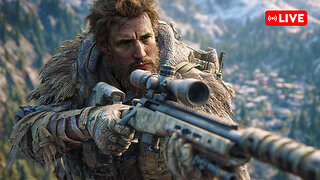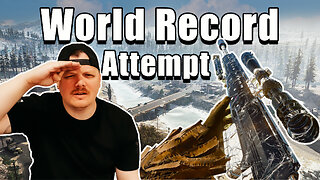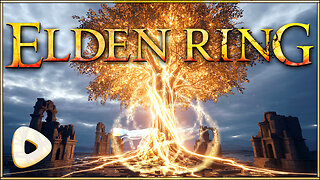Premium Only Content

Trapped in the Canyon
The Story of Aron Ralston
The wilderness has a way of stripping a person down to their core, of revealing who they truly are when the world around them falls silent. It doesn’t care about courage or fear, only about endurance. In April of 2003, a man named Aron Ralston learned that truth in the most brutal way possible, when a moment of chance in the desert canyons of Utah turned into a six-day ordeal that pushed the boundaries of human survival and willpower.
Aron was twenty-seven years old, an experienced mountaineer and adventurer who loved the freedom of nature more than anything else. The mountains were his refuge, his challenge, his purpose. He often explored alone, chasing the quiet thrill of solitude. On April 26, he set out for a solo hike through Bluejohn Canyon, a narrow slot canyon near Canyonlands National Park. He carried a backpack, a few snacks, a small amount of water, a multi-tool, and a video camera to record his adventure. What he didn’t carry was a note telling anyone where he was going.
The canyon was breathtaking — sculpted stone walls glowing red and gold under the desert sun, narrow corridors carved by centuries of wind and water. Aron moved through it with the confidence of someone who had done this many times before. He lowered himself down rock faces, squeezed through tight spaces, and felt the familiar rush of adventure. But in the desert, everything can change in an instant.
While descending into one particularly narrow passage, Aron dislodged a large boulder as he climbed down. In a heartbeat, the rock shifted, fell, and trapped his right arm against the canyon wall. The sound of the impact echoed like a gunshot. Pain shot through his body, and when the dust settled, he realized he was stuck — pinned in a space no wider than his shoulders, twenty meters below the surface, with no one around for miles. He pulled, twisted, and pushed, but the boulder didn’t move. It weighed hundreds of kilograms, a silent, unyielding prison.
Hours passed. Then a day. Then another. Aron rationed his water, trying to stay calm. He used his small knife to chip at the boulder, but it barely made a scratch. He shouted for help, but the canyon only answered with echoes. Each night the desert grew cold, and each morning the sun returned with merciless heat. He recorded video messages to his family, his face hollowed by exhaustion, telling them he loved them, that he was sorry. He began to accept that he might die there, unseen, buried by time and stone.
But something inside him refused to surrender.
By the fifth day, Aron was dehydrated, delirious, and growing weaker. He had no water left, and his trapped arm was turning gray. Then, in a moment of painful clarity, he realized the only way out was to do something unthinkable — to cut off his own arm. It was a decision no one can truly imagine making, but in that narrow canyon, it became the difference between life and death.
Using his multi-tool, he began to work. The process was slow, agonizing, and almost beyond comprehension. He had to break the bones of his arm first, twisting until he heard the crack. Then, with the dull blade of his knife, he cut through muscle, skin, and sinew. The pain was blinding, the effort beyond anything he had ever endured, but his mind stayed clear — survival was the only thought left. When it was done, when the impossible had been achieved, Aron was free.
He wrapped the stump of his arm with what little cloth he had, climbed out of the canyon one-handed, and hiked several miles under the blazing sun until he found other hikers who called for help. He was rescued by helicopter just as his body began to shut down.
Aron lost his arm, but he gained something greater — a new understanding of life, of strength, of what it means to be truly alive. He later returned to climbing, undeterred by his injury, and even climbed all of Colorado’s highest peaks — alone. His story became a symbol of courage, inspiring millions who saw in him the raw, unbreakable will to live.
The desert had taken his arm, but it could not take his spirit. When asked how he endured those six days, Aron said he never stopped believing that his life wasn’t over — that he was meant to walk out of that canyon.
Sometimes, survival isn’t about strength or skill. It’s about the refusal to die when everything around you says it’s time. And in that lonely canyon, surrounded by silence and stone, Aron Ralston proved that the human will can be sharper than any blade.
-
 LIVE
LIVE
Drew Hernandez
1 day agoGOP CIVIL WAR: TUCKER CARLSON DERANGEMENT SYNDROME AT ALL TIME HIGH
1,031 watching -
 14:44
14:44
Sponsored By Jesus Podcast
1 day agoYou Can't Serve God & MONEY | Is Money the Root of All Evil?
15.9K15 -
 2:47:28
2:47:28
Barry Cunningham
9 hours agoYOU'VE BEEN MISINFORMED! GREED IS ACTUALLY GOOD! ESPECIALLY NOW! (AND MORE NEWS)
89.3K37 -
 7:18:24
7:18:24
SpartakusLIVE
9 hours agoSNIPING in Battlefield 6 - REDSEC || Monday MOTIVATION to CONQUER the Week
49.8K4 -
 49:25
49:25
ThisIsDeLaCruz
5 hours ago $5.80 earnedBack Stage Pass with Avenged Sevenfold
49.2K8 -
 6:43:40
6:43:40
GritsGG
10 hours agoWorld Record Win Streak Attempt! #1 Most Wins 3880+!
26K2 -
 3:12:05
3:12:05
Tundra Tactical
7 hours ago $12.45 earnedProfessional Gun Nerd Plays Battlefield 6
56.1K6 -
 1:01:12
1:01:12
Donald Trump Jr.
10 hours agoThe China Matrix with Journalist Lee Smith | TRIGGERED Ep.288
146K87 -
 11:56:00
11:56:00
Dr Disrespect
15 hours ago🔴LIVE - DR DISRESPECT - ARC RAIDERS - FULL SEND INTO THE RED
164K18 -
 5:17:51
5:17:51
JdaDelete
6 hours ago $0.43 earnedFinally playing Eldin Ring | First Playthrough Episode 2
13.4K4